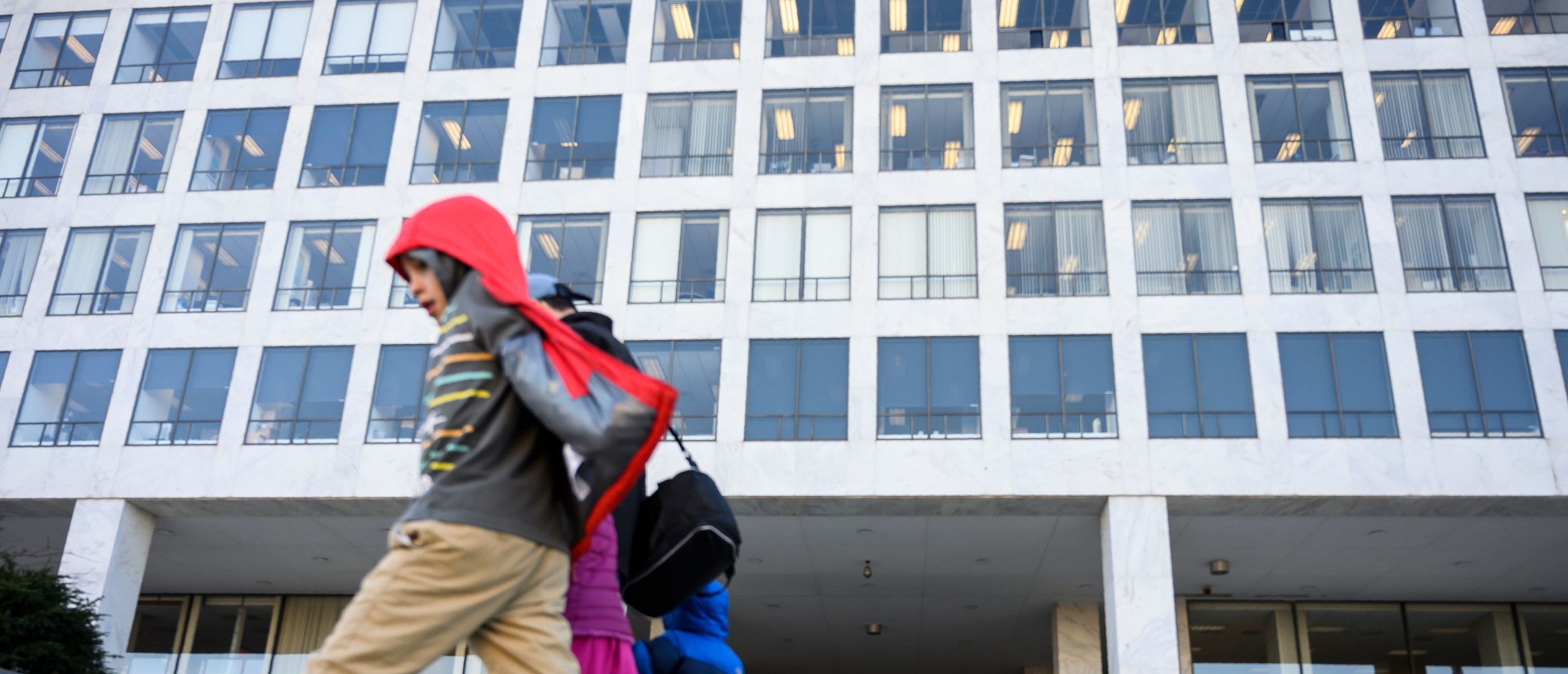A top union official was quoted in a Washington Post op-ed vigorously defending federal workers who continue to work remotely after the COVID pandemic.
Only 6% of federal workers are working in the office full time, 30% work fully remote and 64% were on a hybrid schedule, according to an April Federal News Network (FNN) survey that polled 6,338 federal workers. American Federation of Government Employees (AFGE) Policy Director Jacqueline Simon derided the idea of taxpayer-funded federal employees returning to the office while citing her disdain for the Biden administration’s push against remote work, she said in the Post op-ed.
As of 2023, the Office of Personnel Management (OPM) estimates that there are 2.1 million civilians in the federal workforce.
“People are coming back to the office more days, but to say the least, it’s not very practical or popular,” Simon was quoted as saying in the op-ed. “They worked heroically throughout the pandemic. The idea that they have to go into the office to please Jeff Zients is absurd.” (RELATED: EXCLUSIVE: Joni Ernst Demands Watchdog Investigate Federal Bureaucrats Over Remote Work ‘Abuses’)
President Joe Biden’s Chief of Staff Jeff Zients urged federal agencies in August 2023 to “aggressively execute” a plan to bring back in-person work after COVID-19 subsided. This April he said in a speech to The Economic Club In Washington that the federal government doesn’t have “the return-to-work levels that we should.”
A 2023 Government Accountability Office (GAO) report said 17 of the 24 federal agencies were using less than 25% of office space in January, February and March of 2023. The government spends around $5 billion a year on office leases alone, with another $2 billion to operate the buildings.

A family walks past empty offices in a Federal Building during a government shutdown in Washington, DC, December 27, 2018. – Congress members trickled back into Washington but there was little hope of ending the government shutdown sparked by a row with President Donald Trump over his demand for US-Mexico border wall construction. A lapse in funding to parts of the government meanwhile entered a sixth day. (ANDREW CABALLERO-REYNOLDS/AFP via Getty Images)
Simon said in the op-ed that she understood the “benefits” to in-person work, citing better staff training. However, she did not agree that federal workers have an “obligation to support restaurants downtown” by in-person work.
Remote work remains popular among federal employees and managers, with 84% saying the practice helps in “producing high-quality work” according to an OPM 2023 report. More than 80% of Environmental Protection Agency (EPA) workers said they would face “personal hardships” if remote work policies were cut down, according to an OPM survey.
Moreover, remote work continues to become more common across the economy, with the number of people working from home tripling in between 2019 and 2021, according to the U.S. Census Bureau.
Remote work policies at federal agencies have come under scrutiny from Republican lawmakers in recent months. Republican Sen. Joni Ernst of Iowa once-again requested Thursday that the United States Agency for International Development (USAID) review its remote work policies, citing potential abuses and “ongoing locality pay fraud.”
AFGE Director of Communications T. Andrew Huddleston told the Daily Caller News Foundation that he found the FNN survey misleading, citing a statement from OPM director Rob Shriver that says “54% of federal workers don’t telework at all.” Huddleston added that many federal workers can’t do remote work, listing examples like “nurses, correctional officers, border patrol agents, transportation security officers, and many others.”
He also cited a study from the Congressional Budget Office (CBO) that found 22% of federal employees work from home, compared to 25% for private sector employees in 2022.
“Telework and remote work policies should be negotiated with workers’ unions and should be tailored to the specific needs of the agency and the nature of the work, rather than pursuing a one-size-fits-all approach for the whole of government,” Huddleston told the DCNF.
In response to the government’s massive spending on offices, he said the union would be “happy for the government to give up leases on unoccupied office space to allow that property to be put to productive use.”
All content created by the Daily Caller News Foundation, an independent and nonpartisan newswire service, is available without charge to any legitimate news publisher that can provide a large audience. All republished articles must include our logo, our reporter’s byline and their DCNF affiliation. For any questions about our guidelines or partnering with us, please contact licensing@dailycallernewsfoundation.org.



